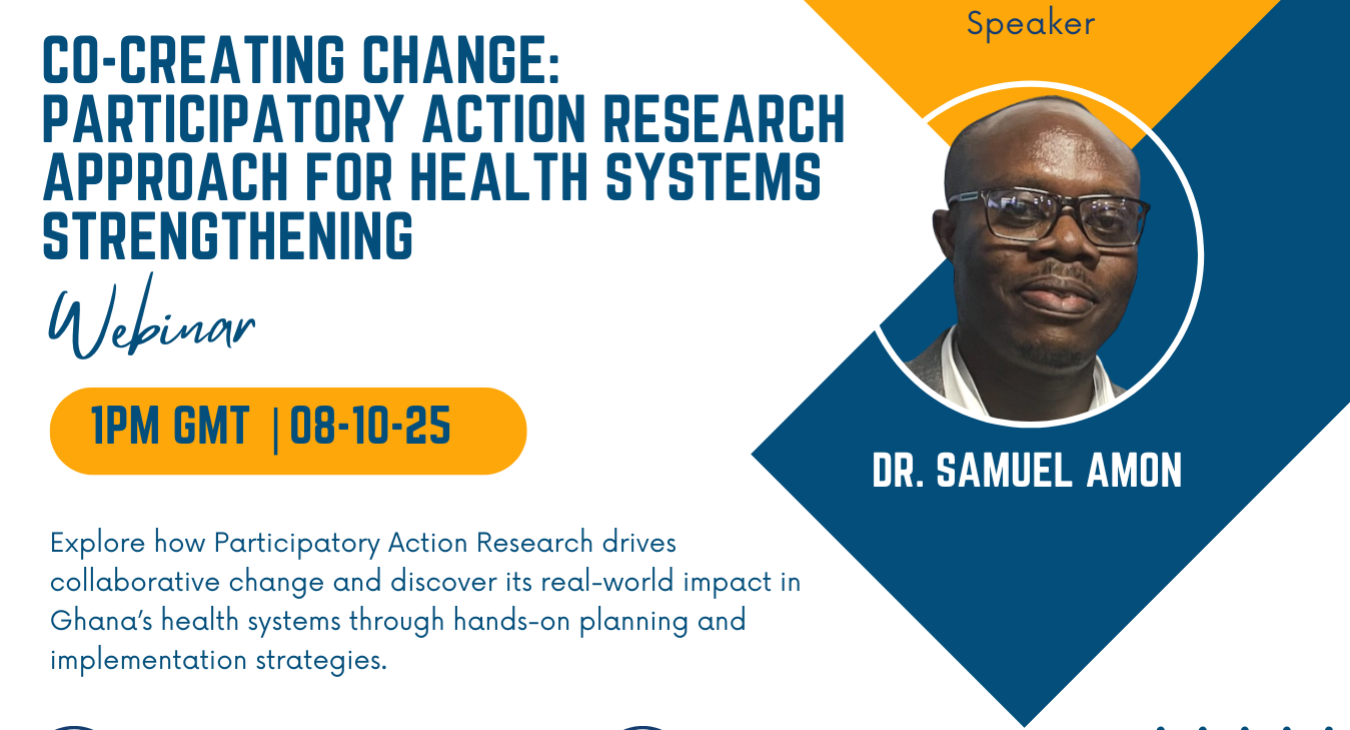About the Webinar
The webinar seeks to provide audiences with an understanding of Participatory Action Research (PAR) as a planning and implementation tool in health systems strengthening. The session will describe the types of PAR, distinguish between PAR and traditional research, and the key characteristics of PAR in health systems strengthening. Drawing on implementation science innovation conducted in the Eastern Region of Ghana, the session will practically delve into the various stages of PAR and its application for co-creating positive changes in health care.
The webinar aims to:
- Introduce participants to the core principles, types, and distinguishing features of Participatory Action Research, especially in contrast to traditional research approaches.
- Demonstrate how PAR can be strategically applied across its various stages to co-create and implement health systems innovations, using practical examples from Ghana’s Eastern Region.
- Examine how PAR fosters inclusive stakeholder engagement and empowers communities to shape and sustain improvements in primary health care delivery.
Date: Wednesday October 8th 2025
Time: 13:00 GMT
Registration link: https://events.teams.microsoft.com/event/623166d7-9d71-4021-a002-82fa05dfabb8@941bbf5f-f2c0-4875-a24c-6907865d251a
About the Speaker
Dr. Samuel Amon holds PhD in Public Health. He has over a decade of working experience in public health and population-based research, mainly focusing on health systems strengthening, economic evaluation of public health and population-based interventions and programs, implementation science research, and health workforce management strengthening. He is a Research Officer, Postdoctoral Scholar and an Assistant Lecturer at the University of Ghana, as well as a facilitator for the World Bank’s primary healthcare performance initiative (PHC-PI) program in Ghana. His current research interests include: health systems strengthening and evaluation; implementation science research; economic evaluation of health policies and interventions; health technology assessment and; climate and health science.
Read more articles
- Log in to post comments

